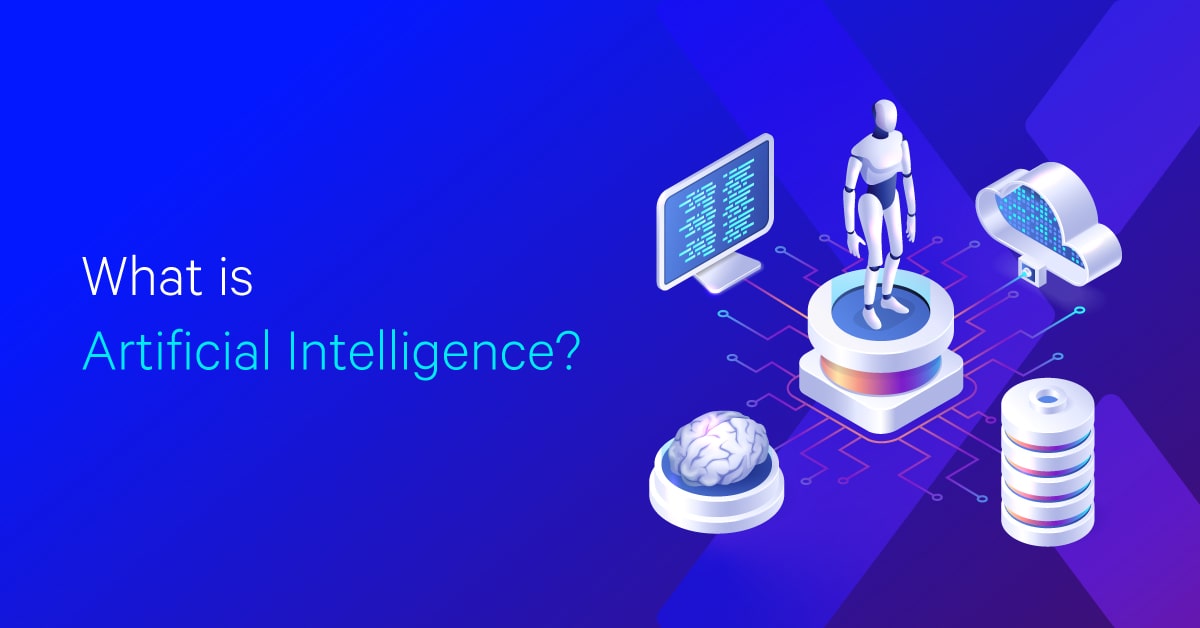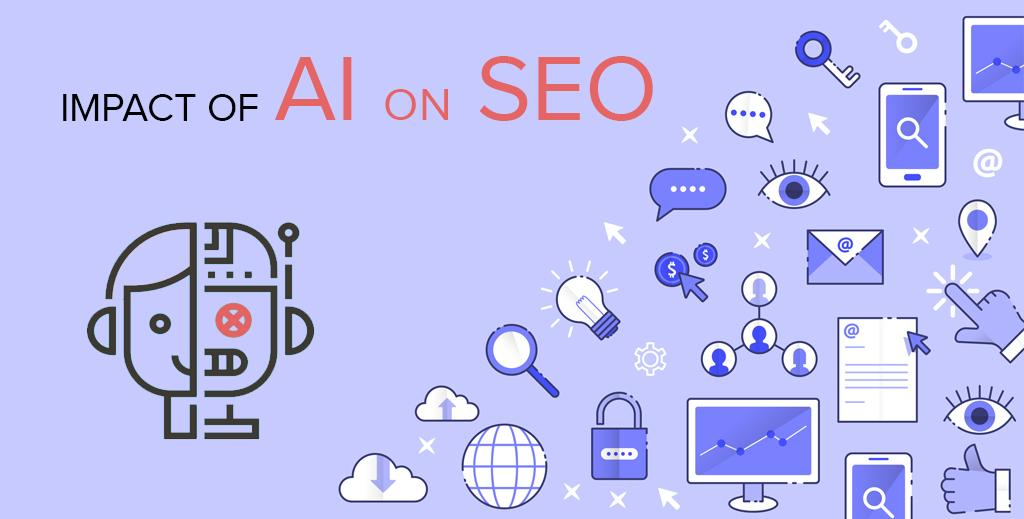What Is Artificial Intelligence?

Hand off the toughest tasks in SEO, PPC, and content without compromising quality
Explore ServicesArtificial intelligence is a tough concept to define but can be simplified as the capacity of an artifact to imitate intelligent behavior.
No longer the realm of blade runner and science fiction, artificial intelligence is the future of serious digital marketing, as it will help in everything from optimizing search engine rankings to driving traffic.
It’s impossible to predict what AI will do next or when we’ll be able to see it take hold on other industries; however, if you want to stay ahead of the curve, understanding where there are opportunities for AI-driven SEO is a good way of preparing yourself and your website for optimal performance.
This article looks at artificial intelligence and machine learning from the perspective of SEO and digital marketing.
What is Artificial Intelligence?
The term artificial intelligence is the common term for computer intelligence. The Institute of Electrical and Electronics Engineers defines artificial intelligence as “the ability of a machine to emulate human intelligence.”
The Merriam-Webster dictionary explains artificial intelligence as “designed or manufactured to simulate or duplicate” something else, as well as “constructed according to a pattern that is not natural but has been designed”.
AI uses machine learning and deep learning techniques to take large data sets and convert that data into expert systems capable of performing a highly specific task in the way a human being might do so.
Whereas the human brain uses an intricate system of neural networks to facilitate decision-making and problem-solving, AI systems automate these processes according to input data.

Source: Shortpixel
In essence, artificial intelligence is any AI technology that is designed to perform the function of a human in a given specific task. People interact with ai systems and ai algorithms on a daily basis, but we might not recognize such applications of AI. Examples include:
- Speech recognition software
- Website chatbots
- Talking to programs such as Alexa and Siri
- Amazon’s, Netflix’s, Youtube’s and other social media suggestions
- Virtual assistants
- Self-driving cars and autonomous vehicles
- Facial recognition for unlocking a smartphone
- Image recognition and pairing when scanning through big databases
- Online tools like text generators, image editors, and presentation makers powered by AI
Why is Artificial Intelligence Important?
Artificial intelligence is here, well-established, and it’s taking over digital marketing across the board.
Consumers are getting more and more comfortable with AI, adding a layer of psychological comfort to the buying process. According to a survey by Google, 71% of internet users would be more likely to complete a purchase after interacting with an AI-powered website or application. 78% of those same consumers said they would be less likely to experience abandonment if their questions were met by an AI-powered site.
As such, if you’re not using AI, and leveraging the true potential of data science and AI computer programs, your customers will go somewhere else. Integrating AI into your SEO efforts, website creation, and customer experience is vital if you are to keep up with your competition.
Artificial Intelligence FAQ
What is AI in SEO?
SEO stands for search engine optimization, and it is the process of ensuring that your website shows up when people type in certain keywords into a search engine. Artificial intelligence can help with this in two ways:
- AI-powered SEO allows you to target less competitive keywords. When you optimize your site for extremely popular keywords, you are adding a lot of competition to the equation and crowding out other potential results. Using AI-powered optimization for keywords that are less popular is a better approach since there’s less competition to contend with, according to HubSpot.
- Artificial intelligence allows you to target different kinds of keywords through deep learning. This means that the system will look at what kind of language lead to conversions and then choose words based on what’s most effective, according to Forbes. Deep learning is also responsible for the ability to make recommendations based on what you’ve selected in past searches, which can help you get more traffic than you already do.
Will AI take over SEO?
AI and SEO go hand-in-hand. SEO is the process of optimizing a website for performance in search engines. AI research and artificial general intelligence nurture this by automation of many of the single tasks that go into SEO.
AI will not take over SEO, rather, AI intelligent machines will become more and more important to SEO as AI researchers continue AI development.
How does AI affect SEO?
Artificial intelligence can help you refine the way that you optimize your site. In the long run, it can help you boost conversion rates by driving traffic from different sources.
This could mean adding a location-specific filter to your site to increase conversions or using location-based keywords in your posts and articles to target potential clients by location.
Summary
Hopefully this article has given you a better understanding of artificial intelligence in the context of SEO. The takeaway message here is that it is vital to start implementing AI in your SEO efforts, as the results are highly beneficial, and if you’re not, you’ll be left behind.
Discuss how we can help you with us or take a look at our SEO packages today, and stay ahead of your competition!
Hand off the toughest tasks in SEO, PPC, and content without compromising quality
Explore ServicesWritten by Jake Sheridan on November 9, 2021
Founder of Sheets for Marketers, I nerd out on automating parts of my work using Google Sheets. At Loganix I build products, and content marketing. There’s nothing like a well deserved drink after a busy day spreadsheeting.





